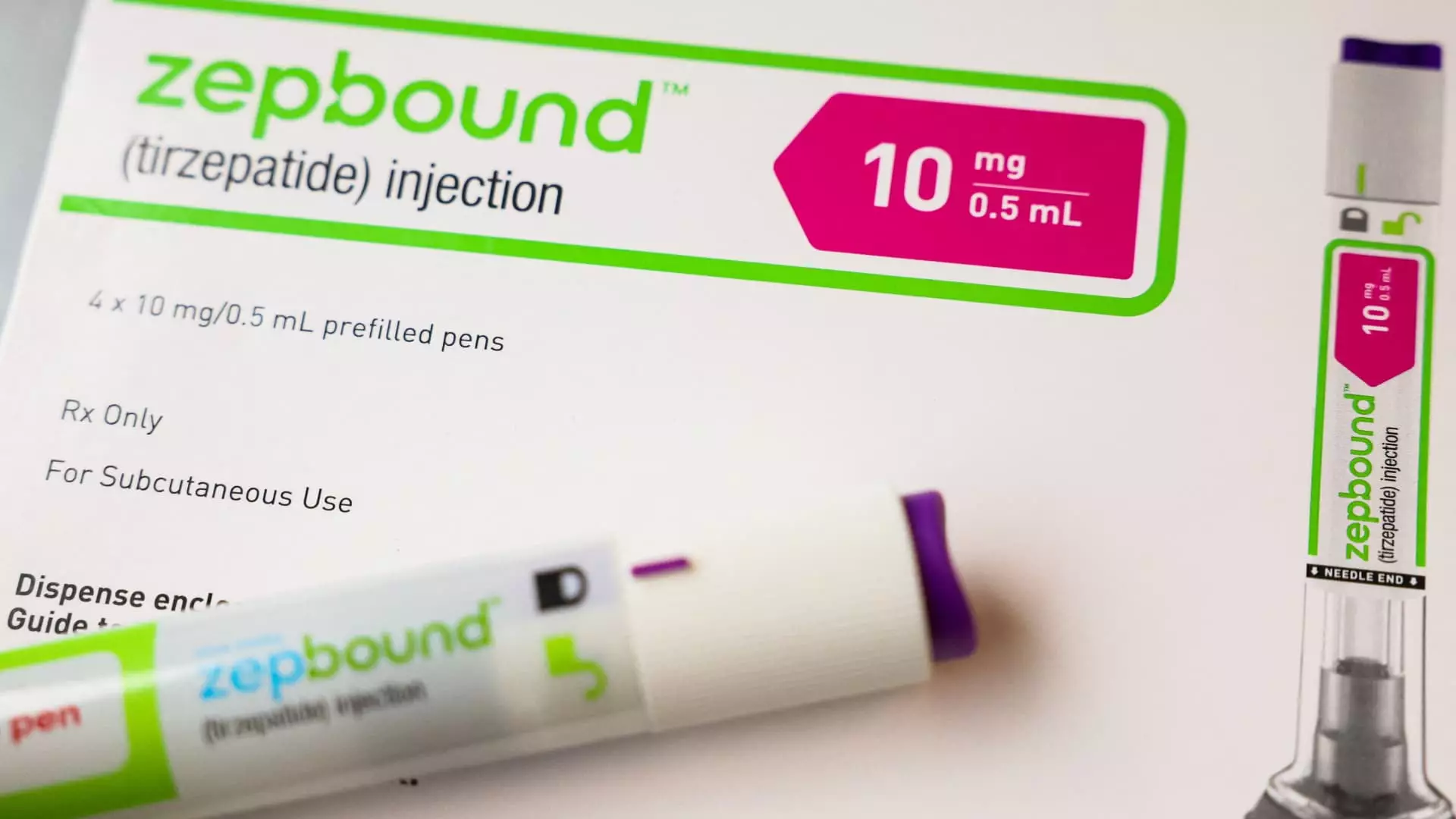Eli Lilly has recently made a significant move in the realm of obesity treatment by introducing higher doses of its weight loss drug, Zepbound, in single-dose vials. This initiative, launched on a Tuesday, is designed to cater to a broader patient base, particularly those who find themselves without insurance coverage for this innovative treatment. The company has strategically priced these vials at about half of their usual monthly list price, aiming to increase accessibility and reach patients in need. This new approach is essential as it expands Lilly’s efforts to meet the soaring demand for Zepbound while simultaneously ensuring that patients use the authentic product rather than its less regulated, often cheaper counterparts.
The Zepbound vials come in 7.5 milligram and 10 milligram dosages, priced at $499 for first prescriptions and subsequent refills within 45 days. After this period, the costs escalate to $599 and $699, respectively. Importantly, these new single-dose vials were introduced as part of LillyDirect, a direct-to-consumer platform that simplifies purchasing for eligible patients diagnosed with obesity, including those with related conditions like obstructive sleep apnea. This strategic pricing move, backed by a decline in the cost of lower-dose vials by $50, indicates a notable shift toward affordability in a landscape where overpriced options and high out-of-pocket expenses are rampant.
The introduction of these single-dose options serves a dual purpose: it makes the treatment more accessible and counters the growing trend of patients seeking compounded versions of Zepbound from pharmacies due to price concerns. Compounding pharmacies have filled a void in the market, but they may not guarantee the same safety or efficacy as the FDA-approved product, making this new vial offering a critical enhancement to patient welfare.
In an insightful interview, Patrik Jonsson, Eli Lilly’s president for diabetes and obesity, articulated the pressing need for more affordable solutions in light of the current lack of coverage provided by Medicare for obesity treatments. This revelation underscores the significant gaps in healthcare policy which neglect essential medical therapies for chronic conditions like obesity, while analogous chronic diseases receive more comprehensive coverage.
Jonsson expressed hope for policy changes, referencing proposed Medicare coverage for obesity medications initiated during the Biden administration. This reflects a broader conversation about health equity, as millions of Medicare beneficiaries are denied access to innovative treatments simply due to their condition’s classification. The waiting game on policy reform places undue stress on patients desperate for effective solutions, with many resorting to unregulated alternatives in the interim.
The reception of Zepbound’s new dosing format has reportedly been positive. While Eli Lilly has been cautious in releasing specific patient numbers, internal insights suggest that the uptake from the new LillyDirect service is encouraging. Currently, the Zepbound prescriptions acquired through this platform comprise a modest share of the obesity treatment market, yet the introduction of the higher-dose vials is expected to enhance this figure significantly.
Interestingly, LillyDirect not only provides a prescription service but also connects patients to independent telehealth services, further streamlining access to treatment. This reflects a modern approach to healthcare, where convenience can significantly influence patient decisions regarding treatment.
Furthermore, with third-party online pharmacies now involved in direct delivery of Eli Lilly’s products to patients’ homes, there is potential for increased compliance among those who might otherwise hesitate to pursue treatment. Direct-to-consumer strategies like these may represent the future of pharmaceutical distribution, aligning healthcare more closely with consumer demand and lifestyle changes.
Eli Lilly’s innovative approach with Zepbound underscores a pivotal transition in the healthcare landscape – the necessity for affordable and accessible treatments in the fight against obesity. By making higher doses available through vials at reduced prices via LillyDirect, the company has positioned itself as a leader in addressing unmet needs within the healthcare system.
While the societal and political implications of these changes remain substantial, what is clear is that Eli Lilly is pushing forward with a vision that values patient access and safety, while encouraging dialogue about the essential need for policy reform in health coverage for obesity treatments. The hope now lies in convincing policymakers to recognize obesity not merely as a lifestyle choice, but as a chronic disease that deserves the same attention and resources as other major health issues.

